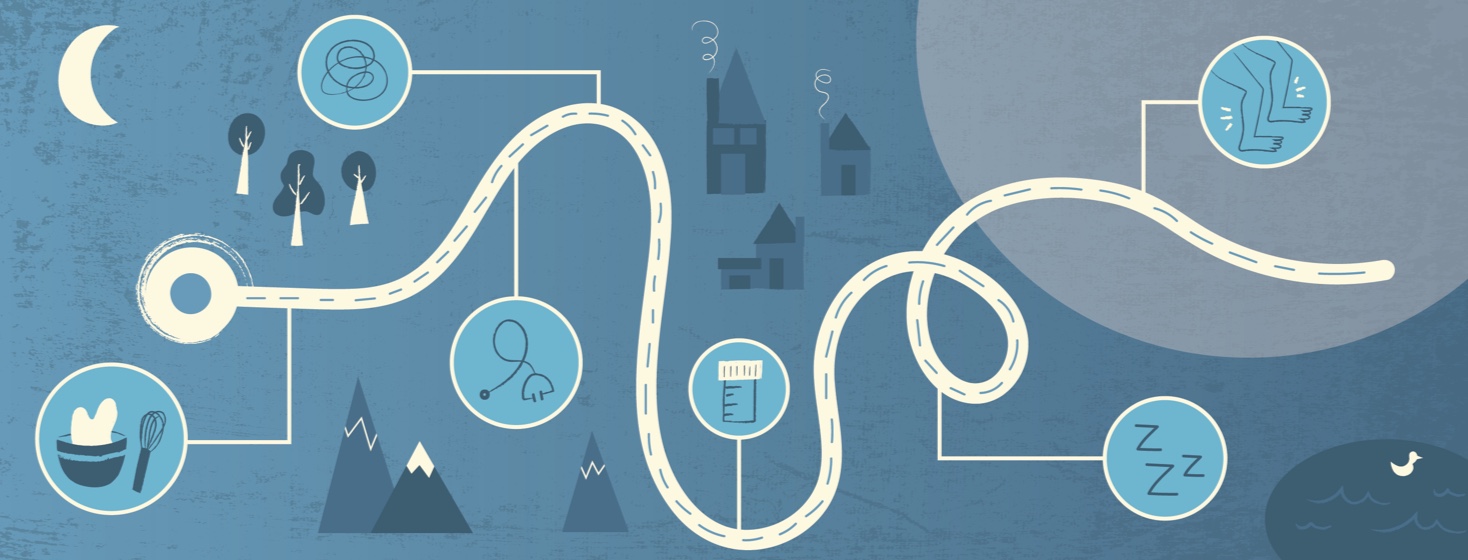The Road to Diagnosis
I first began to have problems sleeping when I was in my 20s. My mother had been an insomniac for as long as I could remember but never sought treatment. Instead, you would hear her mixing up pound cakes in the middle of the night.
I was determined I would not spend a life of sleepless nights. I first brought up the issue with my gynecologist, who I used as my primary care physician.
"90 percent of sleeplessness is caused by anxiety, Kim. You need to relax."
This was not anxiety
I knew my problem was not anxiety. I have always made an effort to pay attention to my body and this was not a particularly anxious time in my life. In fact, there was not a lot of anxiety at all.
"I'm in the 10 percent, then," I told him.
He gave me a prescription for Halcion, an older drug. It worked well for me, for many years.
The return of my sleep problems
I've always had a difficult time sitting still, which I attributed to having ADHD. But when I slept, I always slept without much movement. The bed almost looked like it hadn't been slept in.
It was probably in my 30s when I started having issues sleeping again. We tried to switch my sleeping pills. Nothing worked better than they did, but I was still only sleeping a couple of hours a night and having issues achieving REM sleep.
Having a particularly bad week when my nurse practitioner was on vacation, I made an appointment with one of the other doctors in her practice.
Finally getting a diagnosis
"I'm not sleeping," I told him. "In some ways, it feels like horrible anxiety, but I am not anxious about anything. It feels as though my insides are trying to bust outside. Sometimes when I move to the couch I can sleep a bit, but mostly I am sleeping only minutes a night."
"I can diagnose you now," he said. "You have restless legs syndrome."
I looked at him as though he was crazy.
"But I don't even move at night," I told him.
"And that's the problem," he told me.
He went on to explain that my muscles needed to move and I slept so still they didn't get a chance to "fire."
That made some sense, though it took me reading a bit more about it, and further confirmation from my nurse practitioner, to truly believe him.
One size does not fit all
I'm fortunate I found a doctor that knew enough about restless legs syndrome to diagnose me. Too many, like my former gynecologist, don't. So many healthcare providers are like him and think sleeplessness is mostly attributed to anxiety. There are so many other causes.
Those of us with restless legs syndrome don't present the same symptoms or respond to the same treatment. One size does not fit all.
Listening goes both ways
I've learned to listen to providers, but also require that they listen to me. I am even more in tune with my body than I was in my 20s, and if they don't talk to the expert, they are missing valuable information.
It's not a static condition for most of us, but forever changing. It's been an interesting journey so far, and I suspect there is much more to come. Sleep is never more precious than when you can't.

Join the conversation